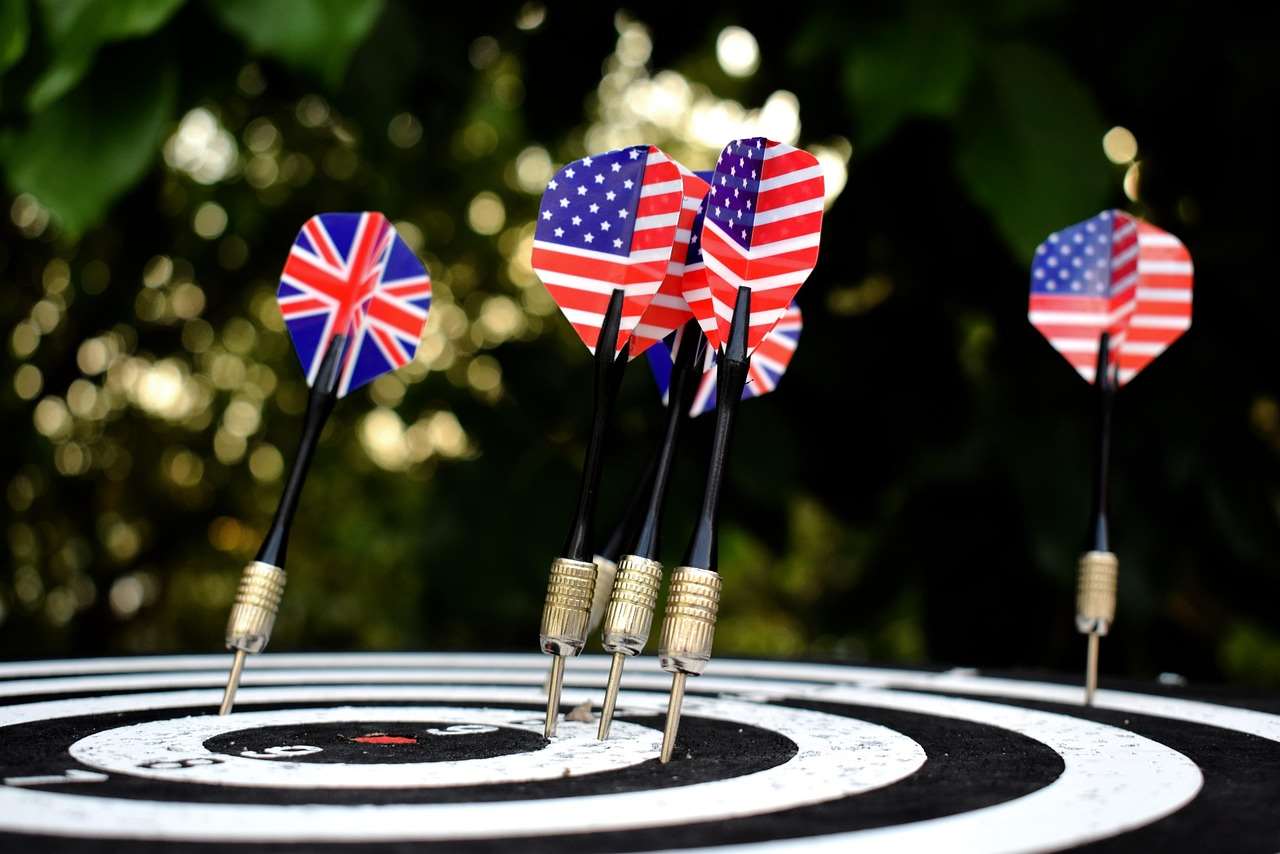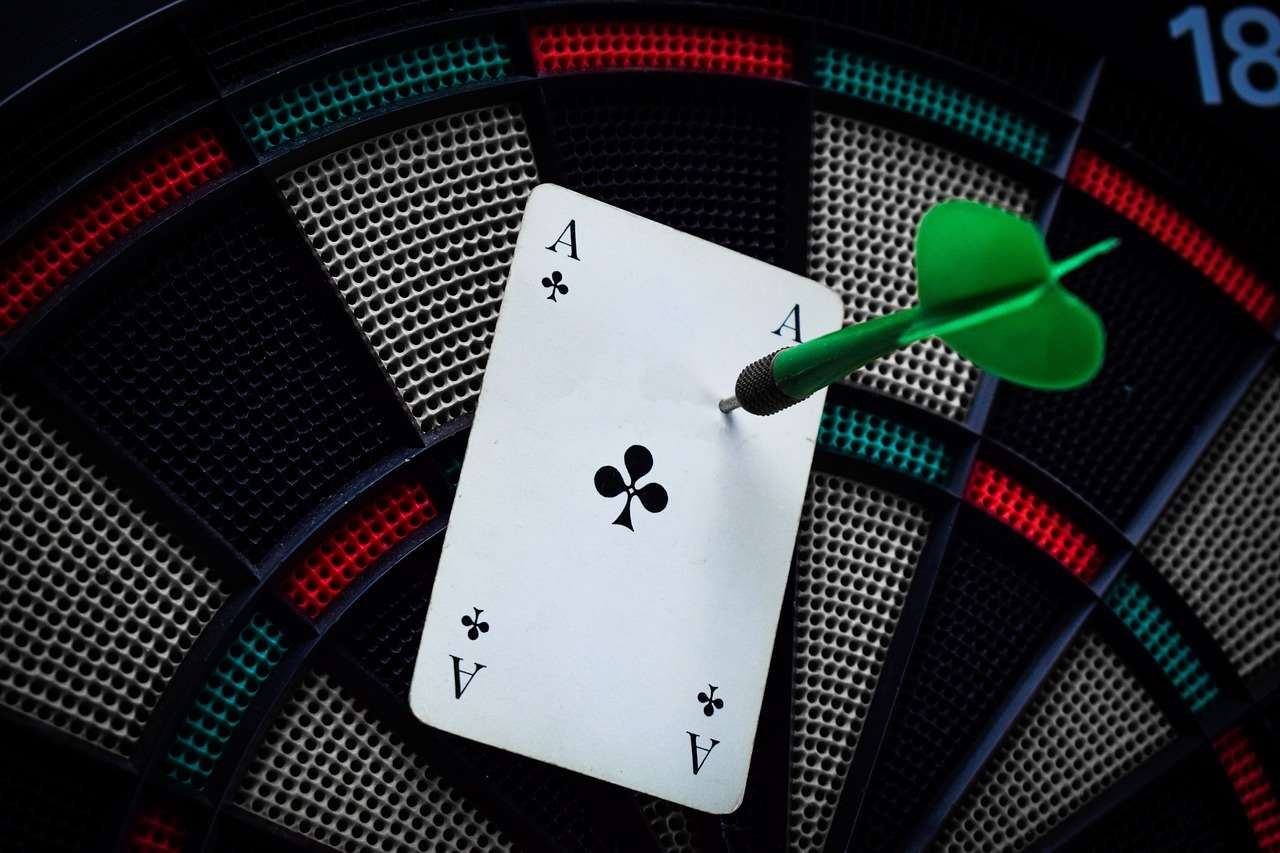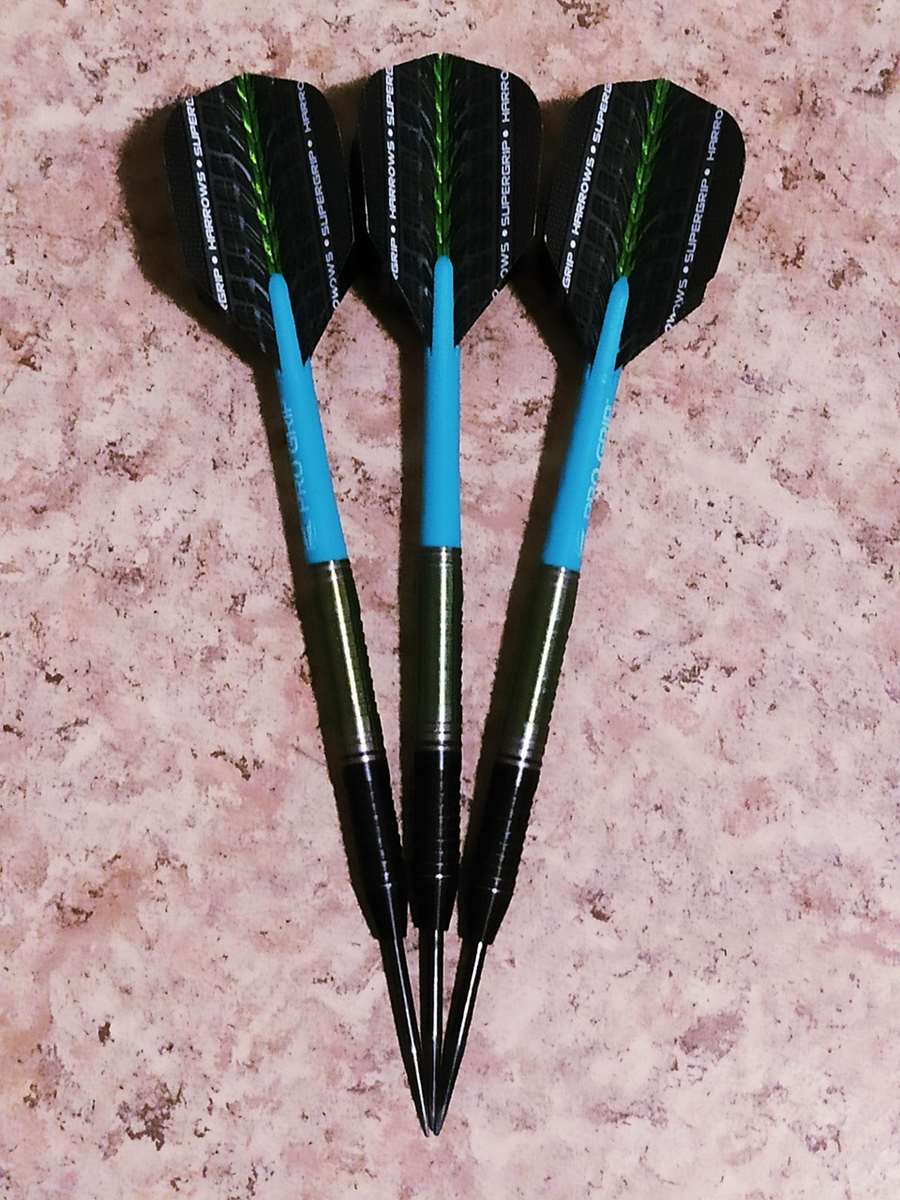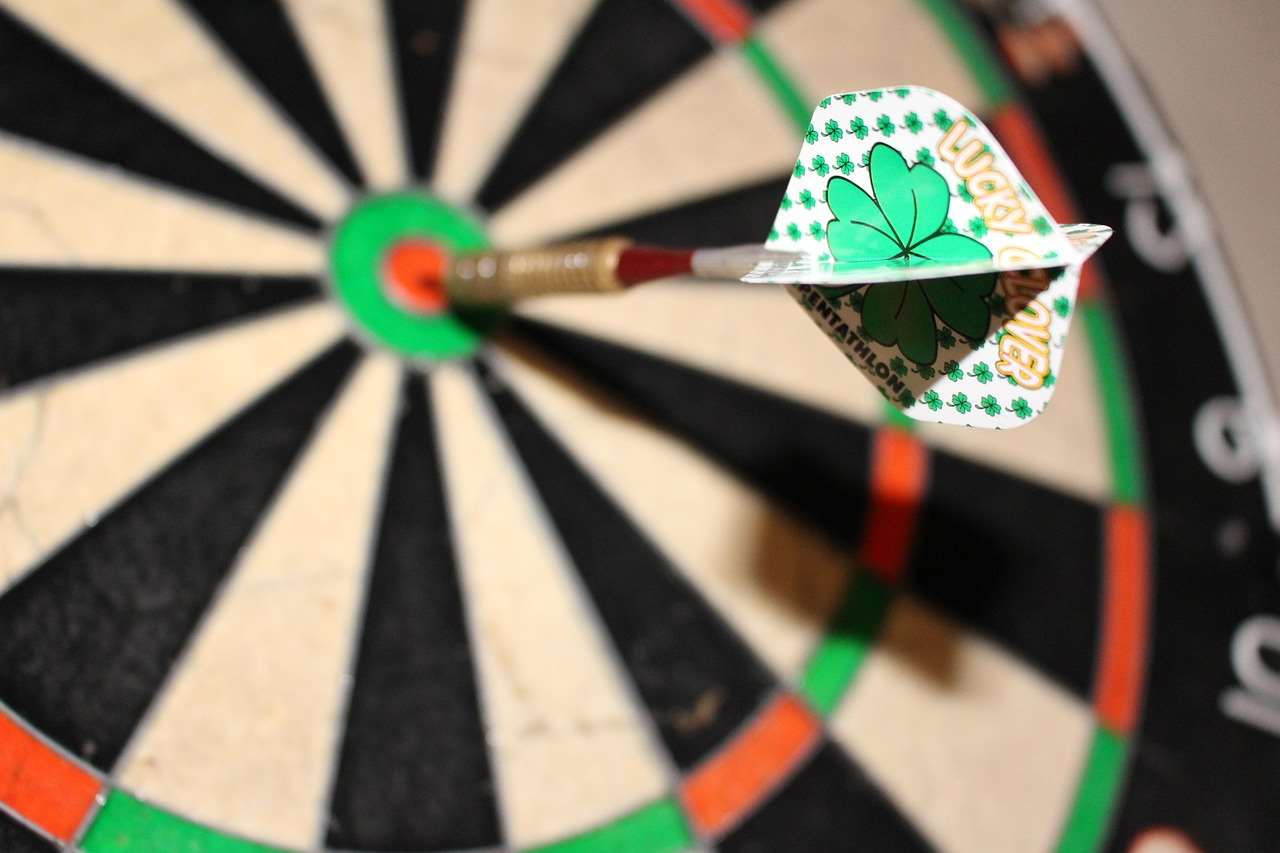Hoe werkt darts? In its simplest form, darts involves throwing small missiles at a circular dartboard divided into numbered sections. This article dives deep into the rules, scoring, techniques, and strategies that make darts a captivating game, whether you’re a beginner or aiming for professional play. We’ll explore everything from the board setup to advanced throwing techniques and match formats.
⚠️ Still Using Pen & Paper (or a Chalkboard)?! ⚠️
Step into the future! The Dart Counter App handles all the scoring, suggests checkouts, and tracks your stats automatically. It's easier than you think!
Try the Smart Dart Counter App FREE!Ready for an upgrade? Click above!
Hoe Werkt Darts: A Comprehensive Guide
Darts may seem straightforward, but mastering the game requires understanding its intricacies. This section explores the foundational aspects of how darts works, from the equipment to the basic gameplay.
The Dartboard: Your Target
The standard dartboard is 17 ¾ inches (451 mm) in diameter and made of sisal fibers. Key features include:
- The Bullseye: The central point, worth 50 points.
- The Double Ring: The outer ring, doubling the value of the section.
- The Treble Ring: The inner ring, tripling the value of the section.
- The Numbered Sections: Divided into 20 sections, each with a numerical value.
The Darts: Your Weapon
Darts consist of four main parts:
- The Point: The sharp end that sticks into the board.
- The Barrel: The main body, usually made of tungsten or brass. Different barrel shapes and weights affect the dart’s flight. Consider visiting darts kopen to explore various options.
- The Shaft: Connects the barrel to the flight, influencing stability.
- The Flight: The ‘wings’ of the dart, providing lift and drag for accurate flight.
Basic Gameplay: Throwing and Scoring
Each player throws three darts per turn, aiming for specific sections of the board to score points. The goal is usually to reduce a starting score (typically 501 or 301) to zero. However, to win most dart games, you must finish on a double or the bullseye.

Darts Rules: The Foundation of Fair Play
Understanding the rules of darts is crucial for both casual and competitive play. Here are some key aspects of the darting rulebook.
Starting a Game
Typically, players throw one dart each, with the closest to the bullseye starting the game. Some leagues and tournaments have predetermined starting orders.
The Throwing Line (Oche)
The oche, or throwing line, is 7 feet 9 ¼ inches (2.37 meters) from the face of the dartboard. Players must stand behind this line when throwing. For junior darts oche distance, this may be shorter.
Scoring
Points are awarded based on where the dart lands. The score is tallied after each turn. Darts that don’t stick in the board or bounce out don’t count. It is recommended to use a darts scorer app to easily track your scores.
Finishing a Game
As mentioned earlier, most dart games require finishing on a double or the bullseye (a “double” is hitting the outer ring of a number). If a player reduces their score below zero or to one without hitting a double or bullseye to finish, the darts thrown are a “bust” and the score reverts to what it was at the start of that turn.

Advanced Darts Techniques and Strategies
Beyond the basics of hoe werkt darts, mastering specific techniques and strategies can significantly improve your game. These strategies can involve specific training routines and exercises, much like darts bullseye practice routines that are commonly used.
Stance and Grip
Finding the right stance and grip is crucial for consistency. Experiment with different stances (straight-on, angled) and grips (2-finger, 3-finger) to find what feels most natural and provides the best control.
Throwing Motion
A smooth, consistent throwing motion is key. Focus on keeping your arm straight and following through after releasing the dart. Avoid jerky movements or excessive wrist action.
Mental Game
Darts is as much a mental game as a physical one. Staying calm, focused, and confident under pressure is essential. Visualize success and learn to handle setbacks.
Strategic Play: Setting Up Your Finishes
Knowing which numbers to aim for to set up your finishes is a crucial strategic element. For example, leaving yourself with a score of 32 (double 16) or 40 (double 20) increases your chances of winning.
Understanding Checkout Charts
Checkout charts provide a quick reference for common finishing combinations, helping you plan your throws more effectively. Knowing these can greatly improve your game.

Darts Variations: Exploring Different Game Types
While 501 is the most common format, darts offers a variety of game types to keep things interesting.
301
A shorter version of 501, starting at 301 points. Ideal for quicker games.
Cricket
A strategic game where players must “close out” numbers by hitting them three times before their opponent does. Numbers 20, 19, 18, 17, 16, 15, and the bullseye are used.
Around the World
Players must hit each number on the board in sequence, starting with 1 and ending with 20. This is a great game for practicing accuracy.
Killer
Each player gets a number (determined randomly). They must hit that number three times to become a “killer.” Killers can then score on other players’ numbers, eliminating them from the game.
Tips for Improving Your Darts Game
Want to take your darts skills to the next level? Here are some actionable tips.
Practice Regularly
Consistency comes from practice. Set aside time each week to practice your throws and techniques.
Analyze Your Throw
Record yourself throwing darts and analyze your technique. Identify areas for improvement and make adjustments accordingly.
Join a League or Club
Playing against other players is a great way to improve your skills and learn new strategies. There are lots of local events for are there any darts matches today.
Experiment with Different Darts
Try different barrel weights, shapes, and shaft lengths to find the darts that suit your throwing style. Different players may prefer something like a dartboard unicorn for its unique brand recognition.
Set Realistic Goals
Don’t get discouraged if you don’t see results immediately. Set small, achievable goals and celebrate your progress along the way.

The World of Professional Darts
Professional darts is a thriving sport with a global following. The Professional Darts Corporation (PDC) and the World Darts Federation (WDF) are the main governing bodies. They organize major tournaments like the PDC World Darts Championship, an upcoming darts championship 2025.
Famous Players
Legends like Phil Taylor, Michael van Gerwen, and Gerwyn Price have captivated audiences with their skill and showmanship. Following professional darts can provide inspiration and insight into advanced techniques.
Major Tournaments
The PDC World Darts Championship, the Premier League Darts, and the World Matchplay are some of the most prestigious tournaments in the world, offering huge prize money and global recognition.

Conclusion: Your Darts Journey Begins Now
Understanding hoe werkt darts is just the beginning. From the basics of scoring to the nuances of advanced techniques, the world of darts offers endless opportunities for improvement and enjoyment. Whether you’re aiming for a casual game with friends or aspiring to professional play, remember to practice, stay focused, and have fun! Now that you understand the ins and outs, why not pick up some darts and start honing your skills? Darts is a challenging and rewarding game that can be enjoyed by people of all ages and abilities. Good luck and happy darting!
Hi, I’m Dieter, and I created Dartcounter (Dartcounterapp.com). My motivation wasn’t being a darts expert – quite the opposite! When I first started playing, I loved the game but found keeping accurate scores and tracking stats difficult and distracting.
I figured I couldn’t be the only one struggling with this. So, I decided to build a solution: an easy-to-use application that everyone, no matter their experience level, could use to manage scoring effortlessly.
My goal for Dartcounter was simple: let the app handle the numbers – the scoring, the averages, the stats, even checkout suggestions – so players could focus purely on their throw and enjoying the game. It began as a way to solve my own beginner’s problem, and I’m thrilled it has grown into a helpful tool for the wider darts community.